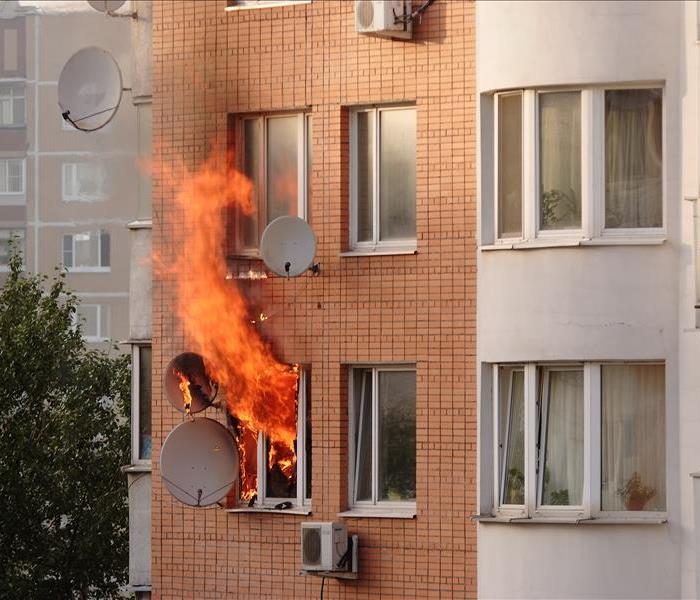Fire Safety in an Apartment Building
10/25/2021 (Permalink)
While the thought of a fire is scary no matter where you live, in a shared living space, such as an apartment or dorm, the fear may be even stronger. With many residents living in close quarters, with long hallways and corridors, and many different escape routes, fire safety in an apartment building is unique from other situations but needs to be prioritized.
What are the biggest causes of apartment fires?
Unsurprisingly, the most common origin of apartment fires is the same as fires in the home. According to the U.S. Fire Administration, more than half of apartment fires are started from cooking related incidents. Other causes cited included heating mishaps, electrical equipment malfunctions, candles, and smoking inside. Like home fires, most of these causes are just everyday activities that can lead to fatal mishaps.
What are the best ways to practice fire safety in an apartment?
Stay smart
While it may seem like common knowledge, you should always be extra careful with any cooking or heating in your apartment. You should never leave an open flame unattended, whether that be a candle or a stove top. Make sure these flames are not close to any combustible items, such as curtains, towels, or any other fabrics. Also, it is safest to avoid smoking in your apartment altogether.
Check for reliable fire protection
One of the easiest things that apartment residents can do to practice fire safety is to ensure that they have a working smoke detector. Every room in your apartment should have one. To test your smoke detector, push the test button at least once a month. If there is any problem with your smoke detector, you should inform your landlord and have it fixed immediately.
Not every apartment building comes with a fire extinguisher, but you can always keep one on hand to stay prepared. A small investment like this one could very well save yourself in a fire.
Know your escape plan
In case of an emergency, you should know all the possible exits to safety get from your unit to outside. A good exercise for apartment dwellers is to count the number of doors between your apartment and the closest fire exit. If you are on a higher floor, it is a good idea to invest in an escape ladder just in case the lower floors are unsafe.
Additionally, in a fire, you should not prop open any exits or doors. These often are in place to prevent the spread of any flames. Be on the lookout for any fire risks in hallways and common areas and notify your building management if anything feels unsafe.
Just like in a home fire, after you escape, you should never re-enter the building under any circumstances.

 24/7 Emergency Service
24/7 Emergency Service
